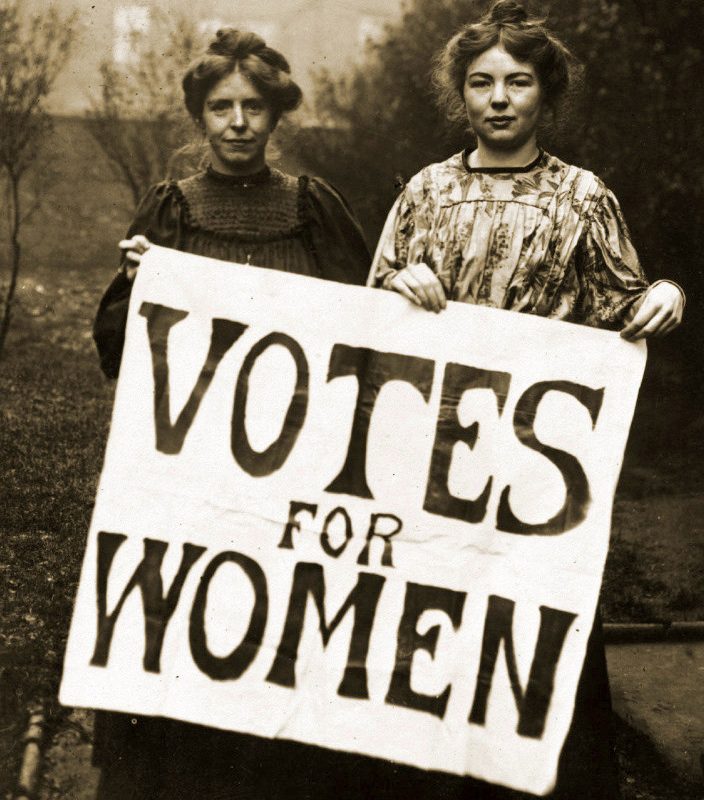
Votes for Women banner 1908. Source Wikimedia.
In the early 1850s Anne Knight, an Essex social reformer and pioneer of feminism, was in correspondence with Isaac Ironside – a Sheffield Chartist and councillor – asking him to suggest women who would be interested in campaigning for female suffrage. Ironside gave her a list of seven politically active women which included Eliza Rooke who was born in Brigg, Lincolnshire in 1824 and married to Thomas Rooke, a confectioner. Together Anne Knight and the working-class Sheffield women formed the Sheffield Women’s Political Association, the first women’s suffrage organisation in the country, 50 years before the famous suffragette movement.
Their first meeting was held on 26 February 1851 at the Democratic Temperance Hotel, 33 Queen Street, Sheffield. The meeting unanimously adopted an ‘Address to the Women of England’ which constituted the first manifesto calling for female suffrage in Great Britain. The Sheffield Women’s Political Association persuaded Lord Carlisle to submit this as a petition to the House of Lords, where it was roundly defeated.
The Association lobbied widely, writing to newspapers, attending meetings throughout the country and encouraging other towns to form their own women’s suffrage groups. The fame of the Association must have been considerable – in a commentary in the London Globe of March 1851 there is a disparaging reference to the ‘spirit of Sheffield gynaeocracy’ and how it might affect a commission of inquiry into divorce law.
The life of the Association seems to have been short – there is no further mention of it in newspapers after 1853, but it was extremely significant in the development of the Suffrage movement.
Eliza Rooke died in 1856 aged 32 and is buried in an unmarked public grave, G2 126, in the Anglican part of the Cemetery.
Eliza is included in the Sheffield General Cemetery Trust’s publication A Woman’s Place about the lives of women buried in the Cemetery.



